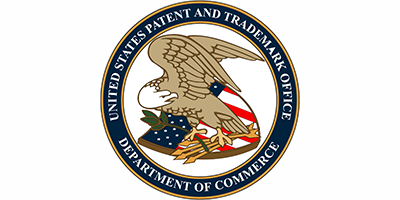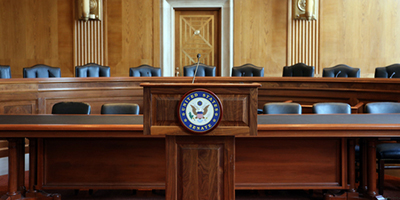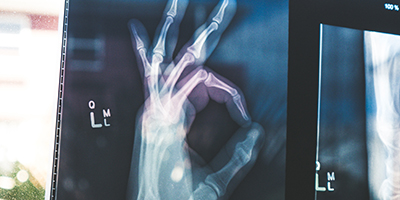News
In This Section
-
 AIPLA President-Elect Barbara Fiacco Testifies on Section 101 Reform
AIPLA President-Elect Barbara Fiacco Testifies on Section 101 Reform
June 6, 2019
AIPLA President-Elect Barbara Fiacco presented the views of the Association at the Senate Judiciary Committee’s Subcommittee on Intellectual Property's second of three hearings on “The State of Patent Eligibility in America.” -
 Indefinite PKI Outage for EFS-Web and Private PAIR
Indefinite PKI Outage for EFS-Web and Private PAIR
June 5, 2019
The USPTO announced that PKI authentication for EFS-Web and Private PAIR will be unavailable starting on Wednesday, June 5, at 12:01 a.m. ET, until further notice. -
 Brunswick Dodges $5 Million Boating Patent Infringement Award
Brunswick Dodges $5 Million Boating Patent Infringement Award
June 4, 2019
The US Court of Appeals for the Federal Circuit on May 31, 2019, reversed a $5,396,250 patent infringement verdict against Brunswick Corp., owner of many popular boating brands. Cobalt Boats, LLC v. Brunswick Corp., Fed. Cir., No. 2018-1376, unpublished 5/31/19. -
 Senate Hearings on Section 101 Reform
Senate Hearings on Section 101 Reform
June 3, 2019
This week, the Senate Judiciary Committee’s Subcommittee on Intellectual Property will hold its first two hearings on “The State of Patent Eligibility in America.” -
 Juniper Evades Finjan Malware Protection Patent Claims
Juniper Evades Finjan Malware Protection Patent Claims
June 3, 2019
The US District Court for the Northern District of California on May 29, 2019, held that Juniper Networks Inc., an American networking products developer, did not infringe Finjan Inc.’s malware protection patents. -
 PKI Outage for EFS-Web and Private PAIR
PKI Outage for EFS-Web and Private PAIR
May 30, 2019
The US Patent and Trademark Office announced that PKI authentication for EFS-Web and Private PAIR will be unavailable starting 12:01 a.m., Thursday, May 30, and ending at 11:59 p.m., Friday, May 31 ET. There is the potential for further outages as well. -
 Bud Light’s Barrel of Corn Syrup Jokes Comes to a Stop
Bud Light’s Barrel of Corn Syrup Jokes Comes to a Stop
May 29, 2019
The US District Court for the Western District of Wisconsin on May 24, 2019, granted a preliminary injunction preventing Anheuser-Busch Companies, LLC from implying in its advertisements that MillerCoors LLC beers contain corn syrup. -
 CAFC Affirms Samsung’s IPR Win
CAFC Affirms Samsung’s IPR Win
May 28, 2019
The United States Court of Appeals for the Federal Circuit on May 23, 2019, found Papst Licensing GMBH & Co.'s software patent, which is related to a software interface device with high data transfer rates, invalid because it was covered by other patented technology and published research. -
 Lawmakers Release Draft to Reform Section 101
Lawmakers Release Draft to Reform Section 101
May 28, 2019
In a May 22, 2019 press release, Senators Thom Tillis (R-NC) and Chris Coons (D-DE), Chair and Ranking Member of the Senate Judiciary Subcommittee on Intellectual Property, Representative Doug Collins (R-GA), Ranking Member of the House Judiciary Committee, Representative Hank Johnson (D-GA), Chairman of the House Judiciary Subcommittee on Courts, Intellectual Property and the Internet, and Representative Steve Stivers (R-OH) released a bipartisan, bicameral draft bill that would reform Section 101 of the Patent Act. -
 Licensee Retains Trademark Rights Despite Debtor-Licensor Rejection of Agreement in Bankruptcy
Licensee Retains Trademark Rights Despite Debtor-Licensor Rejection of Agreement in Bankruptcy
May 21, 2019
Under § 365 of the Bankruptcy Code, a debtor-licensor's "rejection" of a contract operated as a breach of the contract and not as a rescission, the Supreme Court held May 20, 2019. Mission Product Holdings Inc. v. Tempnology, LLC, US, No. 17-1657, 5/22/2019. -
 Competitor Lacks Standing to Appeal PTAB Decision
Competitor Lacks Standing to Appeal PTAB Decision
May 21, 2019
The United States Court of Appeals for the Federal Circuit on May 13, 2019, held that AVX Corp., a manufacturer of electronic components, did not have standing to challenge the Patent Trial and Appeal Board's (PTAB) decision not to invalidate a competitor’s patent. AVX Corp. v. Presidio Components, Inc., Fed. Cir., No. 2018-1106, 5/13/19. -
 Arthritis Pain Reliever Vimovo Invalidated
Arthritis Pain Reliever Vimovo Invalidated
May 16, 2019
The United States Court of Appeals for the Federal Circuit on May 15, 2019, invalidated two of Horizon Therapeutics PLC’s patents for arthritis pain reliever drug Vimovo. -
 ‘Swagway’ Hoverboards Trademark Infringes Segway
‘Swagway’ Hoverboards Trademark Infringes Segway
May 14, 2019
The United States Court of Appeals for the Federal Circuit (Federal Circuit) on May 9, 2019, affirmed an International Trade Commission (Commission) finding that “Swagway” hoverboards infringed Segway Inc.'s trademarks. Swagway, LLC v. Int’l Trade Comm’n, Fed. Cir., No. 18-1672, 5/9/19. -
 USPTO Modifies Patent Term Adjustment Procedures
USPTO Modifies Patent Term Adjustment Procedures
May 13, 2019
The United States Patent and Trademark Office (USPTO) on May 9, 2019, issued a notice concerning modifying its patent term adjustment procedures in view of the decision by the US Court of Appeals for the Federal Circuit (Federal Circuit) in Supernus Pharm., Inc. v. Iancu (Supernus). -
 USTR To Raise China Tariffs
USTR To Raise China Tariffs
May 10, 2019
The United States Trade Representative on May 9, 2019, issued a notice that it is modifying the action being taken in its Section 301 investigation into China’s policies and practices related to technology transfer, intellectual property, and innovation. 84 Fed. Reg. 20459. -
 Second Circuit Upholds Hasidic Jewish Trademark Arbitration Award
Second Circuit Upholds Hasidic Jewish Trademark Arbitration Award
May 9, 2019
The United States Court of Appeals for the Second Circuit on May 1, 2019, upheld an arbitration award in a trademark dispute over the use of the mark “Bobov” within a Hasidic Jewish community. Landau v. Eisenberg, 2d Cir., No. 17-3963, 5/1/19. -
 Microsoft Escapes Copyright Claims for Misappropriation of DRM Tech
Microsoft Escapes Copyright Claims for Misappropriation of DRM Tech
May 6, 2019
The Court of Appeals for the Ninth Circuit on May 2, 2019, upheld the dismissal of Media Rights Technologies Inc.’s (MRT) copyright infringement claims against Microsoft Corp., ruling that MRT should have raised the claims in its 2013 patent infringement suit against Microsoft. -
 DuPont Wins Patent Dispute Over Airplane Blankets
DuPont Wins Patent Dispute Over Airplane Blankets
May 6, 2019
The Court of Appeals for the Federal Circuit on April 17, 2019, affirmed a district court’s ruling that Unifrax I LLC, a global specialty fibers company, infringed DuPont’s patent for materials in thermal-acoustic blankets that are installed in airplanes. E.I. du Pont de Nemours and Company v. Unifrax I LLC, Fed. Cir., No. 17-2575. -
 Copying Photo for Local Film Fest Site Infringes Copyright
Copying Photo for Local Film Fest Site Infringes Copyright
May 2, 2019
The United States Court of Appeals for the Fourth Circuit on April 26, 2019, reversed and remanded a “fair use” copyright decision, holding that Violent Hues’s unlicensed use of a commercial photographer’s photograph on their website failed all four factors of the fair use defense. -
 AIPLA Co-Sponsors World IP Day Events
AIPLA Co-Sponsors World IP Day Events
May 1, 2019
AIPLA co-sponsored two spectacular events in Washington DC in celebration of World IP Day.

.png?sfvrsn=ee40cddd_2)